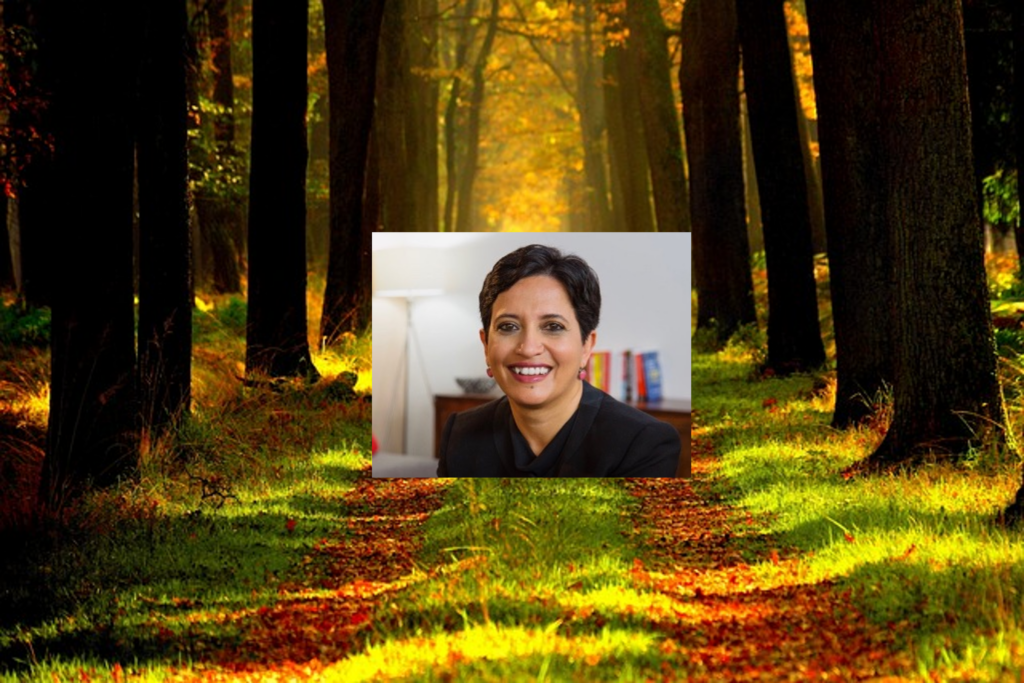Entrepreneur Journeys
The Startup Velocity Question: What Hinders Acceleration in VC Funded Companies?

I have been running 1Mby1M since 2010. I find myself saying to entrepreneurs ad nauseam that VCs want to invest in startups that can go from zero to $100 million in revenue in 5 to 7 years.
Startups that do not have what it takes to achieve velocity should not be venture funded.
Experienced VCs, over time, have developed heuristics to gauge what constitutes a high growth venture investment thesis.
>>>1Mby1M Udemy Courses with Sramana Mitra: Bootstrapping

Over the course of two years, we have released over 70 courses on Udemy with the aim to democratize entrepreneurship education at scale globally. This series of posts aims to help you find the one you need easily and provide you with discount coupons.
>>>Bootstrapping From Oklahoma: Robin Smith, CEO of WeGoLook (Part 1)
How often do you hear of a successful entrepreneurship story out of Oklahoma? Well, meet Robin Smith.
Sramana Mitra: Let’s start with the very beginning of your journey. Where are you from? Where were you born, raised, and in what kind of circumstances?
Robin Smith: I was born in Oklahoma. I was raised, primarily, on a farm. There were about 12 kids in my class. I didn’t know much about the outside world other than what was there in town. I started my entrepreneurial journey in the second grade making yarn belts on the playground. I was able to talk a few of my friends into making them with me. We had quite the distributorship going with yarn belts until the Principal shut us down. When he asked us to stop making yarn belts, I started making Christmas tree ornaments to sell. He shut that down too.
Sramana Mitra: Why were they shutting these things down? What was wrong with that? >>>
Featured Videos
Can 1M/1M Help Me Raise Money?
How Does 1M/1M Democratize Entrepreneurship Education?
How Does 1M/1M Democratize Management Consulting?
When Is The Right Time To Join 1M/1M?
Can 1M/1M Help Me With Business Development?
Can 1M/1M Help Me With Market Sizing?
Can 1M/1M Help Me Validate My Product?
Will I Have Private 1-on-1 Sessions In 1M/1M?
How Does 1M/1M Help Entrepreneurs Connect With Silicon Valley?
Mentoring or Consulting?
Why Does 1M/1M Charge $1000 a Year?
Why Does 1M/1M Partner With Local Organizations?
Why Don\’t Mentoring Networks Work?
Why Is It Important To Study With 1M/1M Now?
Dan Stewart Story
Vikrant Mathur Story
Capital Efficient Entrepreneurship: Venky Balasubramanian, CEO of Plivo (Part 1)
Venky has built a fast growing, profitable company with just $2 million in angel financing, raised as two convertible notes. Excellent navigation, and a lot to learn in the domain of smart, capital-efficient entrepreneurship.
As we are bound to see the market crash in the upcoming quarters, these are the type of companies that will thrive in the post-bubble era.
I frankly can’t wait.
Sramana Mitra: Let’s start with the beginning of your journey. Where are you from? Where were you born, raised, and in what circumstances?
Venky Balasubramanian: I was born in India and was raised here. The first 10 years of my professional life was essentially all telecom before Plivo. I was in software development, a bit of sales engineering, and a bit of actual sales as well across different geographies, including Southeast Asia and Latin America. Then seven years into my professional telecom life, I got bored and I wanted to do my own thing. I was >>>
Scaling to $10 Million from Kentucky: Steve Huey, CEO of Capture Higher Ed (Part 1)
We don’t hear a lot of entrepreneurial stories from Kentucky. Here’s one that is scaling nicely!
Sramana Mitra: Let’s start at the very beginning of your personal journey. Where are you from? Where were you born, raised, and in what kind of background?
Steve Huey: I grew up just outside of Cincinnati, Ohio. My father was an entrepreneur. He built a nice real estate business back in the early 70s, experienced the incredible credit crunch of the mid-70s, and lost his business. That had a big impact on me because I saw the success on one side and the problems on the other. From the time I was six or seven, I’ve always loved the entrepreneurial spirit. I went to Miami University and was an Accounting and Finance major. After my undergraduate studies, I became an auditor with Chiquita Brands International. I was an international auditor. >>>
Scaling with Angel Money Only in Canada: Joel Lessem, CEO of Firmex (Part 1)
Joel is scaling a profitable company in Toronto called Firmex, and has only spent $4 million in angel money to get to almost $10 million in revenue.
Sramana Mitra: Let’s start with the very beginning of your story. Where are you from? Where were you born, raised, and in what kind of background?
Joel Lessem: I was born in Israel but raised in Toronto from the age of three. I grew up in Toronto.
Sramana Mitra: Where did you do your schooling?
Joel Lessem: I did a pair of history degrees at McGill and a Master’s degree. I was actually in the Ph.D. program for History and Metaphysics.
Sramana Mitra: What did you do after your Ph.D.?
>>>
Bootstrapping Using Services First, Raising Money Later: Rohyt Belani, CEO of PhishMe (Part 1)
Following up on our ‘Bootstrapping Using Services‘ and ‘Bootstrap First, Raise Money Later’ case studies, here’s the story of PhishMe, a cyber security company that has scaled nicely.
Sramana Mitra: Let’s start at the very beginning of your story. Where are you from? Where were you born, raised, and in what kind of background?
Rohyt Belani: I am originally from India. I was born and raised in India. I was there till the age of 22. I did my engineering in India.
Sramana Mitra: Where in India are you from?
Rohyt Belani: Bombay. I came to the US to pursue my graduate studies at Carnegie-Mellon back in 2000. >>>
Bootstrapping with a Paycheck: Aytekin Tank, CEO of Jotform (Part 1)
If you haven’t already, please study my free Bootstrapping course.
Aytekin is a Turkish entrepreneur who has bootstrapped his company with a paycheck. He has used a freemium business model, and a virtual team strategy to scale.
Sramana Mitra: Let’s start at the very beginning of your journey. Where were you born, raised, and in what kind of background?
Aytekin Tank: I was born in Istanbul. I spent my childhood moving from city to city since my family worked for the government. Constantly having to adapt and make friends instilled in me an appreciation for different cultures and meeting new people. We have offices in San Francisco and in Turkey. We have remote workers in 20 countries.
Sramana Mitra: You spent your childhood in Turkey, then?
>>>
Long Journey in Healthcare: Canadian Entrepreneurs Matthew Sappern and Emily Hamilton of PeriGen (Part 1)
Perigen is an amalgamation of a couple of different companies. This story relates how the entrepreneurs navigated a long journey.
Sramana Mitra: Let’s start by telling us a little bit about your personal background. I’d like to do that with both of you since you are co-founders.
Matthew Sappern: Just for clarity’s sake, Emily developed this technology. I was brought in by the Board a number of years ago to essentially restart this company.
Sramana Mitra: I see. Emily is the founder.
Matthew Sappern: One of the initial founders, and the developer of the core technology. >>>
Bootstrapping to $15 Million: Ernie Bray, CEO of ACD (Part 1)
Ernie leveraged his domain knowledge in auto insurance claims processing, and has built a robust, sustainable business. He uses a virtual workforce strategy to scale.
Sramana Mitra: Let’s start at the very beginning of your story. Where are you from? Where were you born, raised, and in what kind of circumstances?
Ernie Bray: I was born in a small town in Central California called Porterville, California. It’s a farming community. My dad was a teacher. My mom stayed at home and took care of us. I grew up in a small town environment.
Sramana Mitra: Where did you do your schooling?
Ernie Bray: I was a basketball player and went on to play college basketball. I ended up getting a degree in Sociology and Institutional Analysis from UC Santa Cruz. At that point, I really didn’t know what I wanted to do. I did an internship for the DA of Santa Cruz County. >>>
Bootstrapping With A Paycheck: Katie Echeverry, CEO of Unique Vintage (Part 1)
If you haven’t already, please study our free Bootstrapping course and the Investor Introductions page.
Katie had a pharmaceutical sales job that she used to bootstrap with a paycheck for 5 years, before quitting to go full-time with her business, Unique Vintage. More stories like this can be found in my Bootstrapping With A Paycheck book.
Sramana Mitra: Let’s start at the very beginning of your journey. Tell us where you’re from. Where did you grow up? Where were you born and raised?
Katie Echeverry: I was born in Burbank, California. I still reside in Burbank, California. I went to school and got my Bachelor’s degree in Sociology, but I ended up in sales. When I was about 26 years old, I ended up being a pharmaceutical sales rep, which I enjoyed. What I liked about sales is the harder I worked, the more money I made. I was a natural entrepreneur, but I just didn’t know the word for it. I worked really hard but that wasn’t enough for me. >>>
Bootstrapping a $10 Million E-Commerce Business: Seismic Audio CEO Steve Acree (Part 1)
E-commerce companies are relatively easy to bootstrap. Steve tells the story of his journey bootstrapping Seismic Audio to almost $10 million in revenue.
Sramana Mitra: Let’s go back to the very beginning of your journey. Where are you from? Where were you born, raised, and in what kind of background?
Steve Acree: I was born in Tennessee, about 60 miles north of Memphis. I went to school for computers but I’ve never used my degree. I chose the wrong computer industry. I chose the repair side instead of the software side.
Sramana Mitra: What did you do after you finished college?
>>>
